If you’re a fan of the X-Men, then you should thank editor Jordan D. White for handling them so well. Marvel’s finest moustache has been busy working within the X-Men office for several years now, editing titles like Uncanny X-Men, Wolverine & The X-Men, Uncanny X-Force, and many others. Before then, he worked on a variety of other titles for Marvel, including Incredible Hercules, 15 Love and Darkstar & The Winter Guard — and as we enter the new, crazy world of Marvel Now, he’ll be responsible for the relaunches of Thunderbolts and Deadpool. He’ll also be working on the newly-announced Wolverine: Season One graphic novel, which will be released next year.
But what exactly does an editor do? What’s the difference between a senior editor, an assistant editor, or an associate editor? Determined as ever to unearth secrets and solve mysteries, I chatted with Jordan about his work at Marvel, how editing works, and how his work affects the comics Marvel put out.
Steve: You have a number of different jobs at Marvel – you’re the editor for Deadpool and the upcoming Thunderbolts relaunch, for example, but an assistant editor for Uncanny X-Men. How do the roles differ? Is there a hierarchy as such?
Jordan D. White: Yeah—the more you prove yourself at Marvel, the more responsibility and freedom you get on things. Nick Lowe is my boss—he’s a Senior Editor here, and he’s in charge of all things X-Men. On the books I assist him on, like Uncanny X-Men, Wolverine & the X-Men, etc…he’s the editor. He’s the one plotting the course for the ship (with the writer, of course) while I’m the one running around making sure we’re following that course. Of course, we’re a really open and collaborative office, so my thoughts and suggestions are always heard on the books I assist on, but the final say is Nick’s.
On the books I edit myself, I get to make the final calls. They are my books, my babies to shepherd through. I’m responsible for them at every level, from choosing who to hire to work on the book through to the day it goes off to the printer. Hopefully, the books I edit will be more representative of my editorial voice. That being said, “editorial voice” is (or should be) a pretty subtle thing, and certainly isn’t what readers are looking for when they read comics, so…they probably are not paying attention to that so much as if they get a good read.
Steve: Do you prefer to work on several titles at once, and have an overview of a bigger universe; or focusing on one book in particular and really concentrating on that world?
JDW: The idea of a Marvel editor focusing on one book is…pretty outside the realm of possibility. We have a LOT of books to put out. Just looking at my own schedule, I’m currently editing two on-going series and two miniseries while assisting Nick on seven on-goings and three minis. Add to that the fact that a number of those on-going series will put out more than 12 issues per year, and you can see why the idea of focusing on just working on one book is a little foreign to me.
One book would not be enough to fill up my day editorially. Sure, I would like to have a little less so I could devote a bit more to each project, but that is natural. We all do our best to get as in-depth and immersed in the world of every book we can. Naturally, I am a bit more involved in the books I edit than the ones I assist on, but I can get pretty deep into those as well. I think it’s all about balance, figuring out how much you can devote to each book without selling any of them short.
Steve: What are your most immediate and important duties on any given title?
JDW: I forget who I heard say this, but I’ve heard it said that the job of the editors is to make sure everything gets where it needs to go on time, and that it’s good when it gets there. That’s a tremendous simplification, but pretty true. We’re the shepherds of the books. The individual creators are all responsible for their part in the process of making a comic, but we’re responsible for the process itself. We make the master schedules with deadlines to make sure the book comes out when it’s supposed to, then we work with the creators at every step of the way, from writer to penciler to inker to colorist to letterer to compositor, doing our best to help them make their work as good as it can possibly be.
So as for the most immediate duties, that usually defaults to whatever needs to be done to wrap up the book that’s going to press that very week, just because there is less time remaining. That said, it’s just as important that we have the chance to read over a new script and give notes to the writer, or that we go over pencils to make sure they are getting the story across. If anything goes wrong along any step of the way, it’s on us.
Steve: Are you involved in directly choosing creative talent, or are you more focused on shaping and developing the story, characters, and comic itself?
JDW: I definitely am involved in choosing the creative talent. In fact, Tom Brevoort has often said that casting the book (as we call it) is the most important part of our job.
Steve: How do you decide which artist is right for which book? Is this something you discuss with the writer?
JDW: Sure, sometimes we will discuss it with the writer, sometimes with other editors. Really, casting the book is where things get a bit instinctive. There is no magical formula that assures a great book. You just look at what the creators have done on other books and try to imagine “What would it be like if they worked with Person X drawing Character Y?” Same goes for the writer, too. Well, with a writer, they can pitch you ideas, which will give you a sense of the type of stories they will tell.
Take, for example, the new Deadpool series. Brian Posehn and Gerry Duggan had pitched some Deadpool miniseries ideas that we liked in the past, but hadn’t green-lighted due to one thing or another (bad timing, mostly). But we knew that they were interested, and we had a feel for the type of things they could do. As a result, knowing Daniel Way was going to be wrapping up his run, I approached them for ideas on the series, and they came back with some stellar pitches.
With them in place, it was time to choose an artist. I am not sure who first suggested Tony Moore—it might have been Axel—but as soon as his name came up, we knew it was a great fit. The vibe from the books he draws (in Punisher and Venom) seemed like it would resonate perfectly with the feel of the scripts Brian and Gerry were turning in. From there, I think Tony asked if Val Staples could color the book. Val does a great job on Tony, and I’ve worked with him before and always loved the results, so we locked him in as well.
[Note! For more Val Staples goodness, you can read an interview with him here!]
Steve: If we were to go through the writing of a hypothetical script for, say, Thunderbolts – what comes first? Do you plan out the long-term direction for the book with the writer, or work on an arc-by-arc, issue-by-issue basis?
JDW: Every writer is different, of course, but if we take Thunderbolts as an example, yeah, Dan Way and I started by discussing the overall idea and direction of the book. What was this team about? What’s their mission statement? What brings them together? Answering those questions lead Dan right into what the plot of the first arc of the series was going to be. He gave me a rough outline with 3-4 arcs of the book loosely mapped out, and we bounced ideas from that back and forth for a while. But it’s always important to keep those long-term plans as loose as possible—there is a really good chance that by the time we finish writing the first arc, we’re going to have a different idea of where we’re going than we started with—or at least a different idea of how to get there.
So yeah, it started with those long term ideas. From there, we talked about the first arc, and from there what the actual first issue would be. Then Dan wrote the first issue, and we bounced that back and forth with a couple of revisions before finally locking it down and giving it to Steve Dillon to start drawing.
Steve: The ‘Marvel Style’ method of writing has come back into style recently, in which only an outline is given to the artist, with the writer then adding dialogue once the artwork is completed. Is this an utter nightmare for an editor, or have you found it actually makes for a stronger collaboration between your creative team as a whole?
JDW: I would not say one method is better than the other, just that they are different. I should also point out that “Marvel Style” is used pretty loosely nowadays. From what I’ve heard, Stan used to deliver his plots as a paragraph, if that. Nowadays, I’ve seem plots vary from page-by-page breakdowns with a paragraph per page to what is essentially a full script, dialogue and all, just not broken into panels.
I don’t think Marvel Style is any more of a nightmare for an editor, or it hasn’t been for me. Personally, I think the Marvel Style is a lot of fun, and I do like how collaborative it makes things, that it can result in a writer coming up with lines in a scene they never would have thought of before the art was drawn. I will say, though, since we’ve been doing comics as full-script for so many years, I don’t know that all artists are prepared for what Marvel Style asks of them. That’s not a criticism—we have not asked them to flex those muscles, so it would be unreasonable to make them start bench-pressing hundreds of pounds. In the end, it comes down to the individual writer/artist pairing. What matters most is that they are on the same page, creatively, whether that be full script or Marvel Style.
Steve: Another increasingly popular trend in the company is the long-term story. Daniel Way, in fact, comes to mind here again. His runs on Wolverine Origin and Deadpool both lasted for over 50 issues. How do you manage the need to create a long-term plan for a series against the realities of an unstable, shifting industry?
JDW: There are a lot of ways to approach the long-term story. There are some writers who, literally, go into their runs with a very detailed plan that they then basically follow. Others keep things looser, but have general sense of where things are going.
With Deadpool, I cannot say how Dan planned his entire 63 issue series, since I wasn’t there at the beginning, or indeed even for the first half. But I jumped in right around issue 31, and when I got on the book, Dan had a rough idea for what would be going on from then all the way through issue 54 or so. It was mostly broken into rough arcs building to a big story called Dead.
As we would work on each arc, we’d keep one eye on that future goal and make sure we were building up towards it properly. As we went, the landscape of what was to come would shift. We’d change the arc with Deadpool in a mental hospital from 5 to 3 issues. we’d choose and then rechoose guest-stars, like deciding we did not have room for the Crazy Gang. All sorts of things like that change as you go. Until the issue is drawn, we have time to change things a lot. But I did want to make sure that things continued to go forward at all times, that it was not just a series of unconnected events in Deadpool’s life—it was going somewhere, building towards the next thing.
Even the Dead arc itself, while we did end up telling the story we wanted to tell (Deadpool finds out there is a serum that can take away his healing factor so he can die…and in the end, he gets it, only to realize he has something to live for) but we told it in a VERY different way than we originally thought we might. We got where we were going, but we kept it loose until we needed to lock it down.
Steve: Just personally, do you prefer long-form or short-form stories? 6-issue arcs or 1-2-3 issue arcs?
JDW: This is going to sound sort of lame, but I don’t care so long as they’re good. I’ve seen 3 issue arcs that were rushed and 6 issue stories that dragged on. It’s far more important that the story is given the right amount of space (or the space is given the right amount of story) than it fit into a cookie cutter.
If I absolutely had to give an answer, though, I would say my natural preference is for no arcs at all—that each issue is an issue, and every one furthers things along without defining beginnings and endings as much as all that. I know I’m in the minority on that, though, so I don’t expect to be doing that any time soon.
Steve: Do you feel like your style and preferences have changed over the years you’ve been working for Marvel?
JDW: Absolutely. I’ve worked here for 5 years now, and a lot changes in that time. Most of all, I’ve gained a lot of experience. I think I know more about how all the moving pieces of a story fit together, which of course affects how I view the stories I read or watch. But I’m still me—my favourite comics are still my favourite comics. My storytelling instincts are still rooted in the same place they were when I got this job, they’ve just been honed by use.
Steve: Similarly, do you think the comic book audience has changed? Do you still hope to put out comics which appeal to anyone, or has the target audience shrunk?
JDW: We will never stop trying to appeal to as many people as we can. The tremendous success of the Avengers movie shows that people are interested in super hero adventure stories. Either people still think comics are for kids, or that they are dumb, or they just don’t know about them, but there’s something coming between that audience that made the film the 3rd grossing of all time and the new adventures that come out with those characters every month. Marvel really does try to make comics that reach out to those people, and will likely continue to do so until we get them.
As individuals, as well, we in editorial want people to read our comics. We want more readers, we want new readers, and we want to tell different stories to help bring those new readers in. Sometimes that desire does butt heads with the side of the business that requires us to put out comics that make money. One of the tricks of the market is that sometimes we seem to be rewarded for playing to the fans, for bringing in guest stars, for tying in with tighter continuity, for referencing old stories. One of the lines we have to walk is to not let that overpower our ability to put out books anyone can read. We don’t always succeed, but we are always trying.
Steve: Marvel recently started to go fortnightly on many of their issues, meaning quite often that two or three different art teams will be working on a series at once. How has this changed the way you edit?
JDW: It has to, there’s no choice. It means we will usually have to have the writer write the issues out of order. Take Deadpool, for example. Right now, Tony Moore is drawing issue 3 of the series, and Brian and Gerry are working on writing issue 4 for him. But, because we plan on double-shipping at some points this year, there’s no way Tony can do every issue of the series. As a result, we have a different art team coming on for the second arc. In order for that artist to make the double ship schedule, Brian and Gerry have already written issue 8, and it is also being drawn right now. It means we have to plan things out a little more firmly, and takes away a bit of that manoeuvrability I was talking about before. We have to lock things down earlier than we might have had to on a monthly book.
Steve: Editors only seem to get blamed when a story overrules previous continuity, or has a spelling mistake. It’s a little superficial. What do you think actually marks out a well-edited comic from a poorly-edited comic?
JDW: That’s ok, that’s what we’re here for—taking blame. Being responsible for stuff. Fact is, I think a well edited book is one where no one is talking about how the book is edited. The editor should be getting out of the way of the writer and artist, and they’re the ones who people should be talking about when the book is good.
I think most people don’t watch a great TV show and say “man, there was some KILLER executive producing in that episode!” They talk about the writing, the acting…the tangible stuff you can point to. That’s why it makes sense that editors get blame—our best work is evident by a book NOT having something awful in it.
Steve: And finally, almost forgot – how did you first come to work for Marvel? Best job ever?
JDW: Yeah, working at Marvel is definitely a dream come true. Like any job, it has moments that make me angry or get me shouting and pulling out my hair…but it also has moments where I remember where I am and what I’m doing and I just get overwhelmed with joy. It’s really amazing to have a job that I care about, one that I am really invested in on all levels. So there’s that.
Benedict Cumberbatch, JDW, and Steven Moffat!
As for how I got here, I have a Master’s degree in English/Creative Writing, which probably helped get their attention. I think, though, that the way I got the skills that made me good at this gig (to the extent I am, I should say) was writing and producing radio serials. For three years before I got this job, I was a DJ at WHRW Binghamton in Binghamton, New York. It’s a free format radio station and, as much as I love music, I decided that I’d rather use my show to make stories. As a result, I created a bunch of radio serials and roped in most of the people I knew to help write and act in the series. Doing that shared a lot in common with what I do now—working with creative people to make their stories as good as possible, working with a lot of people on one project, doing things on a regular deadline…
I’m actually tremendous proud of the work we did on those radio serials, and I’ve tried to keep my hat in the radio theatrical ring a little bit through my podcast, “Cast In Wax”. I started it four years or so ago as a way to re-release our old series, but we ran through the original shows a while back. Since then, a bunch of my pals from my radio days have been making and submitting serials to the podcast, while I’ve been making other new comedy segments using the four host characters (myself, my cat, and two other characters I play). I’ve put out 139 episodes, most of which are over an hour long, and I have a LOT of fun making it. If anyone wants to check them out, we’re on iTunes as “Cast In Wax” or you can go to my website, http://www.wax-work.com, to check it out!


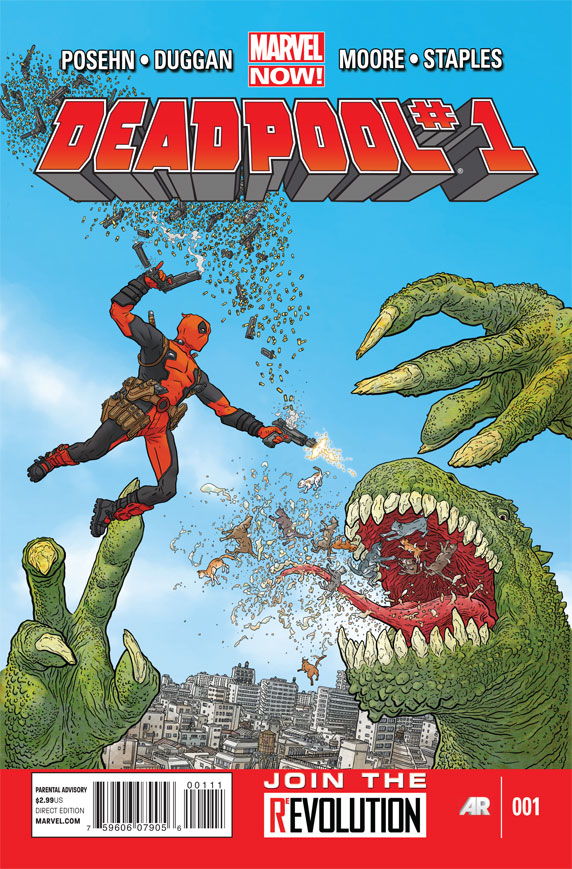
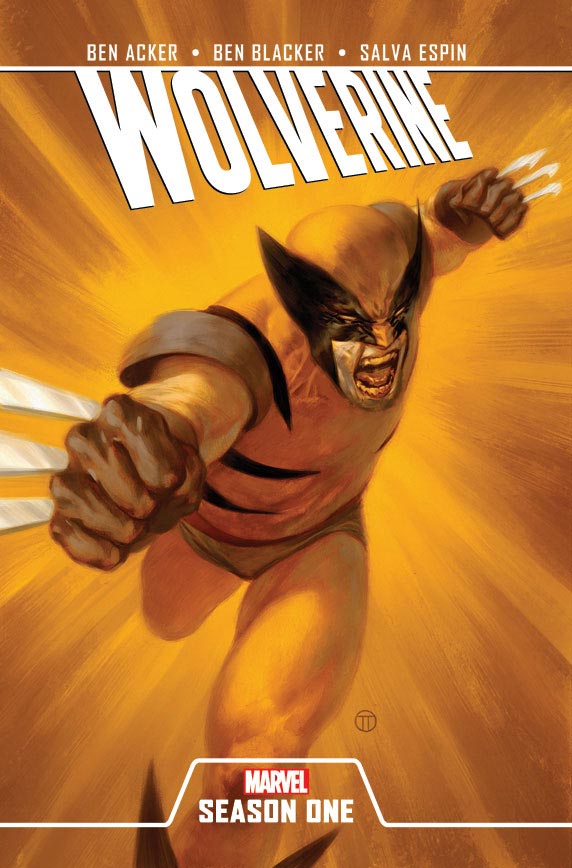
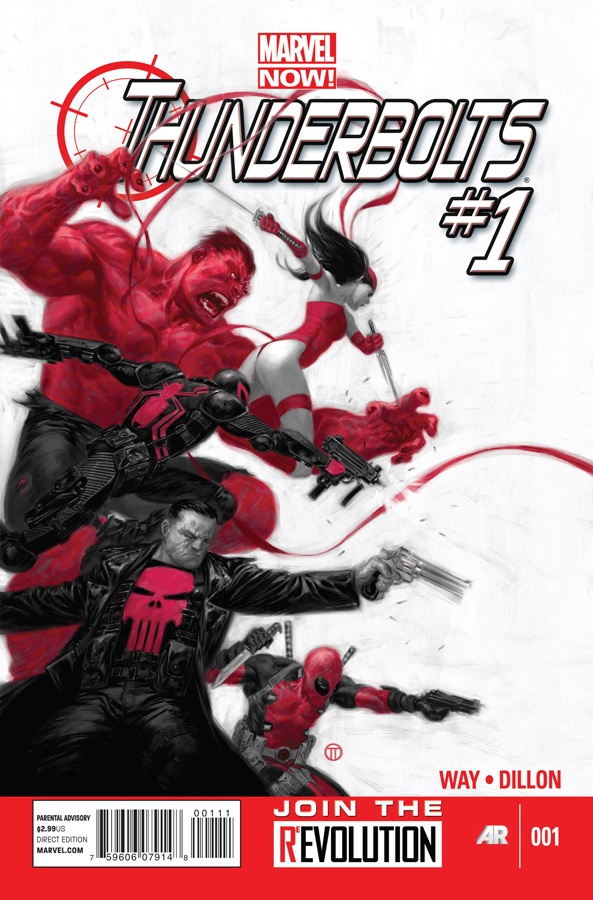
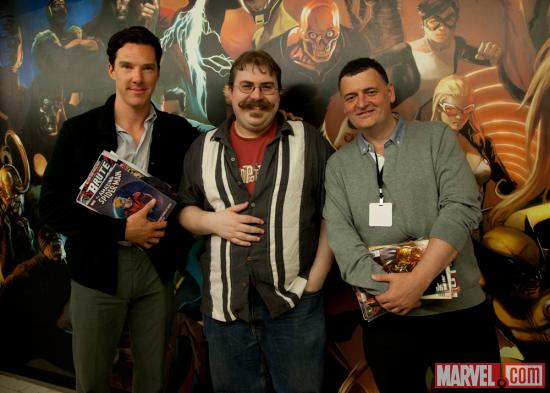
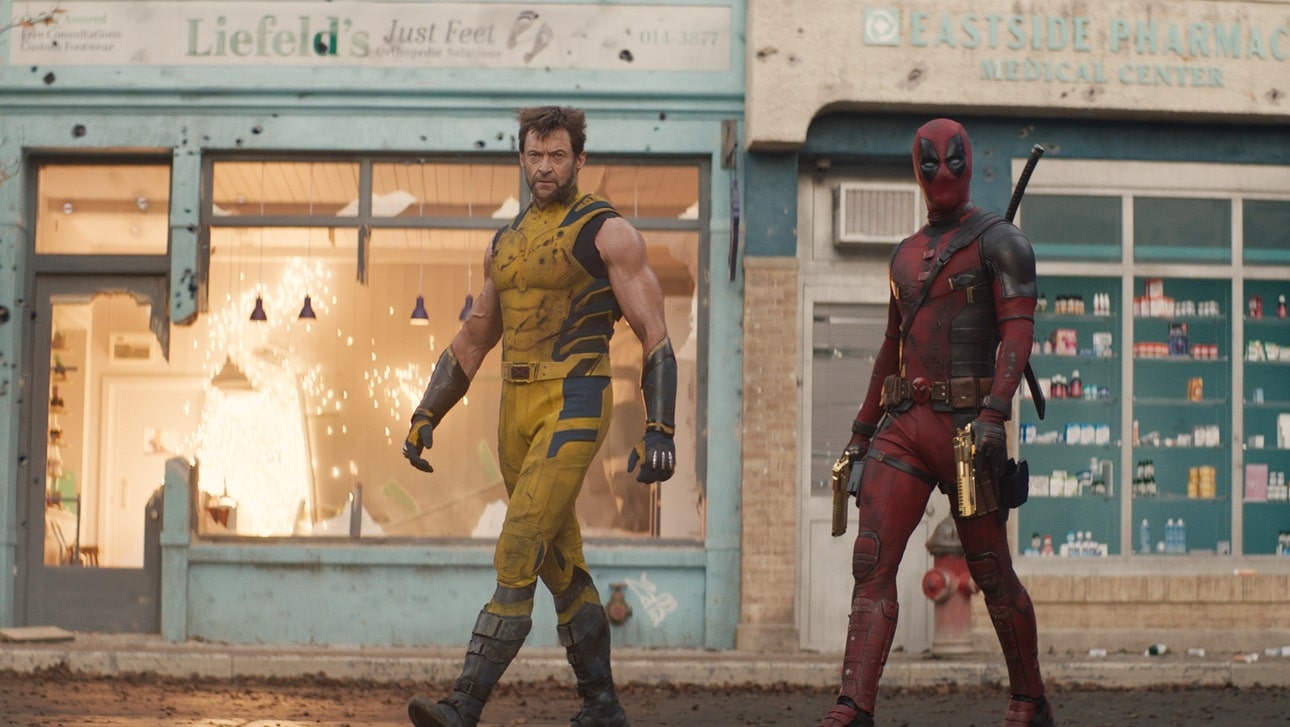





So, I did an interview with The Beat about what editing comics is like, from my POV. You can read it here: http://t.co/yIx1iYwH
RT @cracksh0t: So, I did an interview with The Beat about what editing comics is like, from my POV. You can read it here: http://t.co/yIx1iYwH
Great article with @cracksh0t discussing editorial process, collaboration, and production http://t.co/p1uXjjGG
RT @Comixace: INTERVIEW: Jordan D. White reveals the secrets of editing: http://t.co/Po71c89Q
In case you missed it over the weekend, here’s the interview I did with The Beat on being a Marvel editor: http://t.co/yIx1iYwH
RT @cracksh0t: In case you missed it over the weekend, here’s the interview I did with The Beat on being a Marvel editor: http://t.co/yIx1iYwH
RT @cracksh0t: In case you missed it over the weekend, here’s the interview I did with The Beat on being a Marvel editor: http://t.co/yIx1iYwH
@DeadpoolBugle I talk a bit about working on Pool and Tbolts in this new interview, so you know. http://t.co/gspBvOzp
RT @cracksh0t: In case you missed it over the weekend, here’s the interview I did with The Beat on being a Marvel editor: http://t.co/yIx1iYwH
RT @cracksh0t: In case you missed it over the weekend, here’s the interview I did with The Beat on being a Marvel editor: http://t.co/yIx1iYwH
RT @cracksh0t: In case you missed it over the weekend, here’s the interview I did with The Beat on being a Marvel editor: http://t.co/yIx1iYwH
RT @cracksh0t: In case you missed it over the weekend, here’s the interview I did with The Beat on being a Marvel editor: http://t.co/yIx1iYwH
Jordan D. White reveals the secrets of editing http://t.co/xVwWCyjq #comics #marvel
Great interview with my old boss @cracksh0t http://t.co/AsucO1c8
RT @TheVictorShow: Great interview with my old boss @cracksh0t http://t.co/AsucO1c8
Fantastic interview with Marvel’s @cracksh0t on THE BEAT! Conducted by the one & only @stevewmorris: http://t.co/hSk0lrfU
RT @DavidGallaher: Fantastic interview with Marvel’s @cracksh0t on THE BEAT! Conducted by the one & only @stevewmorris: http://t.co/hSk0lrfU
This interview with a Marvel editor is mind-bottling in how writers need to approach double-shipping books. http://t.co/S9LvNV3H
Interesting interview with Marvel’s Jordan D. White about what it means to edit comic books: http://t.co/D0VBLKdI (via @comicsbeat)
Solid interview.
Comments are closed.